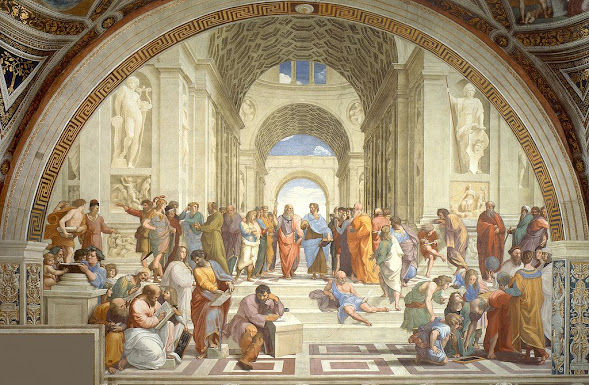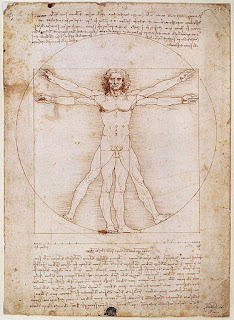 |
| Raphael [Public domain], via Wikimedia Commons |
For our first post, we’d like to point out that you can successfully study the Humanities to prepare for a medical career!
In fact, according to the Association of American Medical Colleges, Humanities Majors scored higher on the MCAT in 2016 than students majoring in the Biological Sciences, Math, the Social Sciences and Specialized Health Sciences. The mean score for Humanities majors was 125.7, while students in the Biological Sciences scored 125.4.
To be more specific:
Philosophy, History and English majors have higher acceptance rates to medical school than most science majors:
Medical School acceptance rates, broken down by major:
Philosophy 50%
History 49%
English 46%
Biochemistry 43%
Physics 42%
Chemistry 39%
All majors 37%
Biology 35%
(from the Association of American Medical Colleges-1998-Last year data is available)

Leonardo da Vinci [Public domain], via Wikimedia Commons
Humanities majors (including philosophy) have higher MCAT scores than most science majors:

Average MCAT Score by Major:
Biological Sciences 501.6
Humanities 504.4
Math and Statistics 503.6
Physical Sciences 503.3
Social Sciences 502.6
Specialized Health Sciences 498.6
All Applicants 501.8
(source AAMC 2016-2017)
While all applicants to medical careers should take all needed science pre-requisites, a philosophical or humanistic course of study provides a strong background in critical thinking, the nature of science, ethical decision making, and the nature of happiness/well-being.
Thanks to Dr. Eric Silverman for the research behind this post!